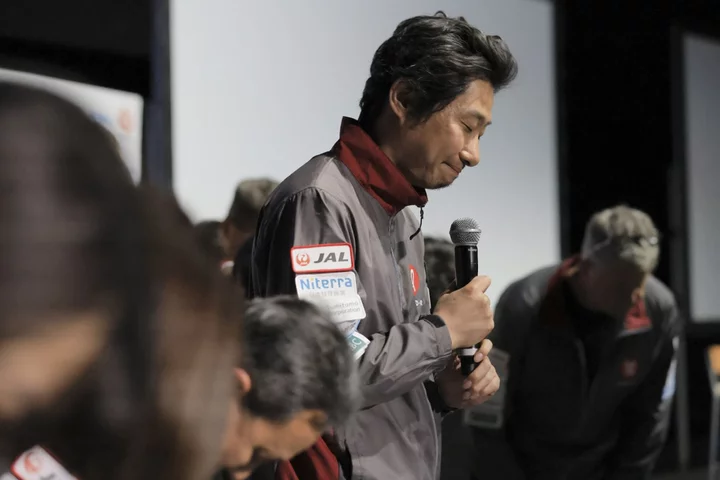Japanese space startup Ispace Inc. will reach for the moon again after its first attempt to land a rover on the lunar surface in April ended in failure.
The second mission will launch on a SpaceX Falcon 9 rocket as early as the northern hemisphere winter of 2024, the Tokyo-based company said Thursday.
The payload of the lander — named ‘Resilience’ — includes a water electrolyzer, a module for experimenting with food production, a deep space probe, a commemorative metal plate based on Japanese anime series Gundam and a micro-rover developed by Ispace.
The rover, which weighs around 5 kilograms (11 pounds) and stands 26 centimeters (10 inches) tall, will be equipped with a high-definition camera to capture images of the moon’s surface and a shovel to collect lunar rocks. The mission will contribute to NASA’s Artemis program — the US space agency’s plan to return astronauts to the moon.
Ispace’s Hakuto-R Mission 1 lander was scheduled to land on the moon in late April, but communication was lost shortly after it began its final approach. The company later confirmed the lander likely made a hard landing, a major setback for its ambitions to spearhead Japan’s foray into the growing commercial space industry.
“Improvements will be incorporated into the Mission 2 flight model to reflect necessary software validation, expansion of the landing simulation range, and additional field testing of the radar sensors to further improve mission accuracy,” Ispace said Thursday.
The announcement of Ispace’s second mission comes after the Japan Aerospace Exploration Agency successfully launched its H2-A rocket in September. The heavy payload rocket was carrying an advanced imaging satellite and a lightweight lander that’s scheduled to reach the moon soon as January.
The space race is heating up after India became the first country in August to land a spacecraft near the moon’s south pole. A Russian attempt at a lunar touch down in the same area a few days before that ended in failure following an engine malfunction.
Founded in 2010, Ispace has said it wants to create a lunar settlement by 2040, and plans to make money by ferrying goods and equipment to the moon.
It’s competing with a number of companies racing to place the first commercial lander on the moon, including Houston-based Intuitive Machines Inc. and Pittsburgh-based Astrobotic Technology Inc.
And yet, despite growing interest in the fledgling commercial space industry, a dearth of rockets with payload capacity has left many scrambling for options while others postpone or cancel launch plans altogether.
Japanese billionaire Yusaku Maezawa, who was tapped to lead the inaugural launch of the SpaceX Starship, last week said he had to cancel those plans indefinitely after the rocket exploded during a test flight in April.
SpaceX received approval late Wednesday US time to resume launches of the Starship rocket, and the company is targeting a two-hour window on Friday.









